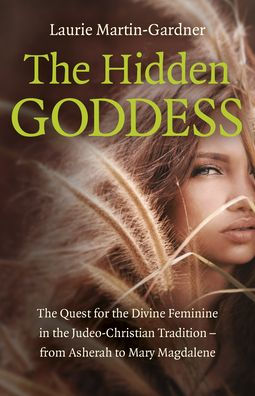Well-written, informative, and well-documented, this book has to be read to be believed. I kept looking up topics and I could not find anything that wasn't corroborated elsewhere. The biblical quotes are accurate and the author is literate in the mythologies of the ancient people who neighbored the Israelites. This is important because the premise of goddess influences being hidden in Biblical and rabbinical sources will be seen as nothing short of heresy by some. Whether you enjoy this book will be determined by two factors: your respect of academic study of ancient religions and having the stomach to deal with radically changing visions of Judaism and Christianity.
Even people who aren't devout or practicing Christians or Jews may have some difficulty with the idea that the ancient Hebrews started out as a polytheistic people who took hundreds of years to settle into pure monotheism. If it were not for recent archeological discoveries of ancient texts confirming the inclusion of the divine feminine appearing in various forms amongst the followers of Yahweh, the idea of hidden goddess worship in these monotheist sacred texts would be absurd. A lot of modern religious folk will prefer to suppress what has been very successfully repressed for so long. They probably will not read this book. So why would you read this? Do you have unanswered questions like why is a genderless, ineffable, undescribable, bodyless, almighty God always described in the masculine? Or why in the old Testament were only the priests of the God Baal murdered and not the priests of the Goddess Ashereh? Or have you always felt that there is an unexpressed feminine side to the old patriarchal religions?
Chapter One, the Quest and Chapter Two, the Queen, lay the groundwork for the argument that Yahweh, the all powerful God of the Hebrews was the Jewish people's version of the Father God who had counterparts in the mythologies of the neighboring tribes and who in fact absorbed the characteristics of some of these Gods as the Israelites conquered them. With repeated bible verses discussing from one generation to the next, a violent seesawing from acceptance of the monotheistic God to reverting to the toleration of the gods of their neighbors, the road to monotheism was not swift. The role of the Goddess remained entrenched in the popular religious customs of the people regardless of what was being promoted at the king's temple. Remarkably, the worship of Ashereh even made it into the temple of Solomon for about 2/3 of the time the temple stood. Seeing the biblical and rabbinical stories in context with other contemporaneous Near East mythologies helps make sense of the ancient texts in a way nothing else does. For that reason alone, it would be worth reading the Hidden Goddess .
One might think that the divine feminine is finally stamped out when the Jews become true monotheists but over hundreds of years there is always an evolution allowing for a more motherly, feminine side to be revealed. Readers may see with new eyes the stories of Adam and Lillith and Eve, Shekinah, Mother Mary and Mary Magdalene.
A surprisingly quick read on a heavy topic that is both entertaining and fascinating. Great if you take an interest in religious studies, near east archeology or would just like to have something new to say at the next dinner party.
Highly Recommended.
~review by Elsie Smyte
Author: Laurie Martin-Gardner
Moon Books, 2020
104 pages, $12.95
The Hidden Goddess: The Quest for the Divine Feminine in the Judeo-Christian Tradition-from Asherah to Mary Magdalene

©
2010 - 2025
Facing North
